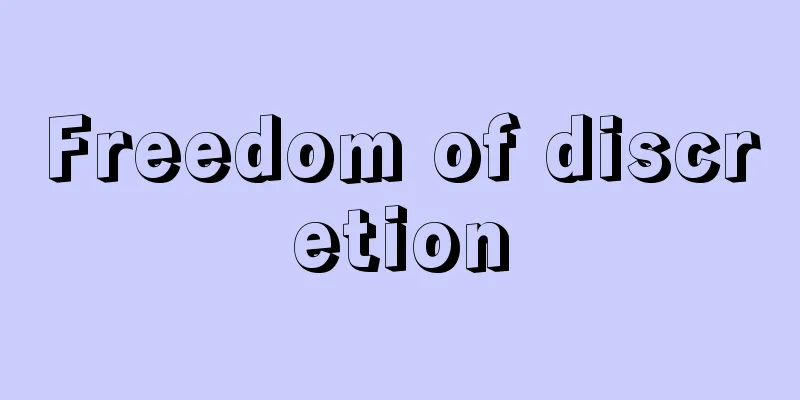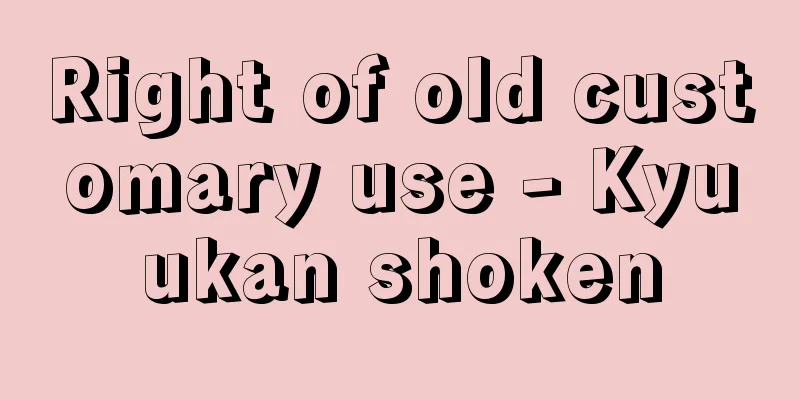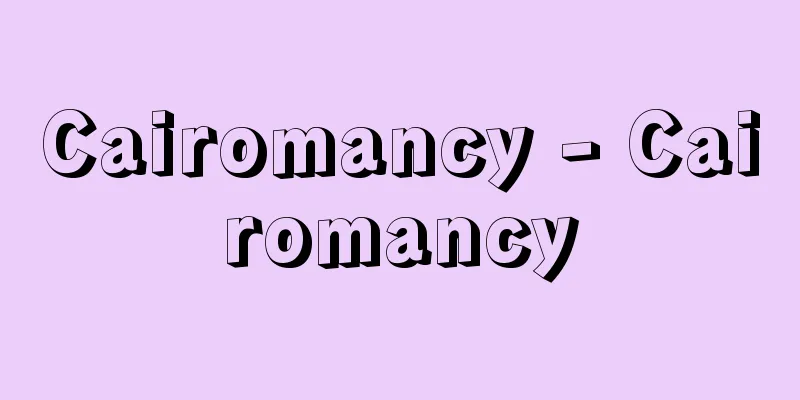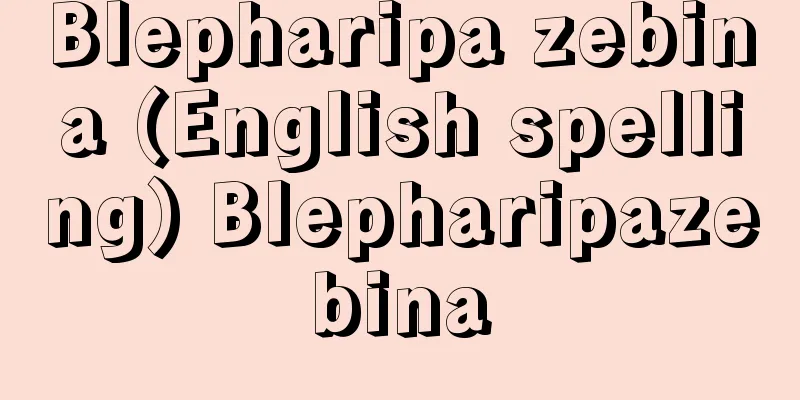Freedom of discretion

|
Discretion or free discretion generally refers to the room for independent judgment and action within a pre-existing framework. In addition to legislative discretion, which means the room for legislators to make free decisions within the framework of the constitution, and judicial discretion, which means the room for judges to freely apply the law within the framework of the law, there is administrative discretion, which is granted when applying and operating the law within the framework of the law and when establishing subordinate laws and regulations, but what has been mainly discussed is administrative discretion. Below, we will only explain administrative discretion. In administrative law, administrative actions are divided into binding and discretionary actions based on whether or not the administrative agency is bound by law, and discretionary actions that are allowed discretion are divided into statutory discretionary actions, which require the exercise of discretion in accordance with the spirit of the law, and free discretionary actions, which are allowed freedom from the law. Although statutory discretionary actions are called discretionary, they are no different from binding actions in that they are subject to judicial review as to whether or not the exercise of discretion is in accordance with the spirit of the law. In contrast, discretionary actions have the characteristic that they are not subject to judicial review as to their validity. However, even if they are discretionary, they are permitted within the scope permitted by law, so if they deviate from the discretionary authority (exceed the limits of discretionary power) or are exercised against the spirit of the law (principle of equality, principle of proportionality, etc.) (abuse of discretion), they become illegal (Article 30 of the Administrative Case Litigation Act). The reason that discretion is granted to the administration is because it is impossible for legislators to establish detailed and reasonable provisions that will respond to every possible future situation, and flexible and reasonable solutions that are tailored to individual circumstances are necessary. However, when discretion is granted, there is always the risk of it being abused, so the task of administrative law has been to appropriately control it. Therefore, administrative law has made efforts to explore the criteria for distinguishing between statutory discretion, which is subject to judicial review, and free discretion, which is not subject to judicial review unless it is overstepped or abused. Originally, there was a conflict between the theory that emphasizes the wording of the law and that discretion is possible when the law does not include detailed provisions regulating administrative actions, and the theory that acts that violate the rights of citizens cannot be discretionary acts, regardless of the wording of the law. However, in the end, it depends on the interpretation of the purpose and intent of the law, and it is said that there are many cases where discretion is recognized in political and technical areas. Recently, rather than dividing administrative acts into two categories as discretionary or not, there is a tendency to discuss whether or not discretion is present for each element of an administrative act (requirements, purpose, procedure, balance = proportionality = choice of disposition, whether or not to exercise a disposition) individually, from the perspective that the same administrative act can contain both binding and discretionary elements. [Yasuhito Abe] [ReferenceSource: Shogakukan Encyclopedia Nipponica About Encyclopedia Nipponica Information | Legend |
|
裁量ないし自由裁量とは、一般的には、あらかじめ存在する枠組みの範囲内での独立の判断・行動の余地をいう。憲法の枠内での立法者の自由な決定の余地という意味での立法裁量、法の適用にあたる裁判官に認められる法の枠内での自由な法適用の余地という意味での司法裁量のほか、法律の枠内での法律の適用・運用や下位法令の定立に際して認められる行政裁量があるが、おもに論じられてきたのは行政裁量である。以下、行政裁量に限って説明する。 行政法学では、行政庁が法の拘束を受けるかどうかを基準として、行政行為を覊束(きそく)行為と裁量行為に分け、裁量の認められる裁量行為について法の趣旨にかなった裁量を行使することが必要な法規裁量行為と、法から自由な裁量が認められる自由裁量行為とに二分してきた。法規裁量行為は裁量と称しているが、法の趣旨にかなった裁量行使かどうかについて裁判所の審査を受ける点で覊束行為と変わらない。これに対し自由裁量行為はその当否について司法審査を受けない特色がある。しかし、自由裁量といえども、法律の認める範囲内で許されるのであるから、裁量の権限を逸脱したり(裁量権の限界の踰越(ゆえつ))、法の趣旨(平等原則・比例原則など)に反して行使したり(裁量濫用)すれば違法となる(行政事件訴訟法30条)。 行政に自由裁量が認められる理由は、立法者が将来のあらゆる事態に対応する詳細かつ合理的な規定を置くことが不可能であり、個々の事情に即した柔軟かつ合理的な解決が必要であるためである。しかし、自由裁量を認めると、つねに濫用のおそれがあるので、それを適切に統制することが行政法学の課題とされてきた。 そこで、行政法学では、司法審査の対象となる法規裁量と、踰越・濫用がない限り司法審査の対象とならない自由裁量の区別の基準を探究することに努力してきた。もともとは、法律の文言を重視し、法律が行政の行動を規制する詳細な定めを置かないときは自由裁量とする説と、法律の文言いかんにかかわらず国民の権利を侵害する行為は自由裁量行為ではありえないとする説が対立していたが、結局、法の趣旨目的の解釈によるものであり、政治的・技術的領域では自由裁量を認めるものが多いともいわれる。 最近は行政行為を自由裁量行為か否かに範疇(はんちゅう)的に二分するのではなく、同一の行政行為について羈束的要素と裁量的要素があるとの観点から、行政行為の諸要素(要件、目的、手続、均衡=比例性=処分の選択、処分の発動・不発動)について個々に裁量の有無を論定する傾向にある。 [阿部泰隆] [参照項目] | |出典 小学館 日本大百科全書(ニッポニカ)日本大百科全書(ニッポニカ)について 情報 | 凡例 |
Recommend
Imputed costs - imputed costs
...Generally, a cost is the price that an economi...
Bertel Thorvaldsen
Danish sculptor. Born in Copenhagen, he studied a...
Hemans
...There are very few nocturnal species in this g...
Siricidae
…General term for insects belonging to the family...
Gaṇitādhyāya (English spelling)
...Of these, Lilāvatī and Bījagaṇita deal with th...
Osaka [city] - Osaka
Osaka City is located in the central west of Osaka...
Isotopes - Douwei
Nuclear species with the same number of protons i...
"Briefe, the newest literatur is used" (English: Brief, the newest literatur is used)
...In France, P. Maribault's Spectateur Franç...
Intelligent terminal - Intelligent terminal
...The terminal control unit connects and disconn...
Earth line
A grounded metal wire used mainly for lightning pr...
Deposition disease - Chinchakusho (English spelling) Deposition
Discoloration caused by the deposition of foreign ...
Disaster Countermeasures Basic Act
This law aims to promote comprehensive and system...
Dry gas - dry gas
This refers to combustible natural gas that comes ...
Torihama Shell Mound
<br /> The shell mound is located in Toriham...
Jiujiang
A prefecture-level city in the northernmost part ...






![Ishikawa [City] - Ishikawa](/upload/images/67cae8063ad37.webp)


